Property taxes in Australia: Full guide for Americans
Want to learn about property taxes in Australia? This guide covers types of property taxes and how they are calculated to help you navigate the process.
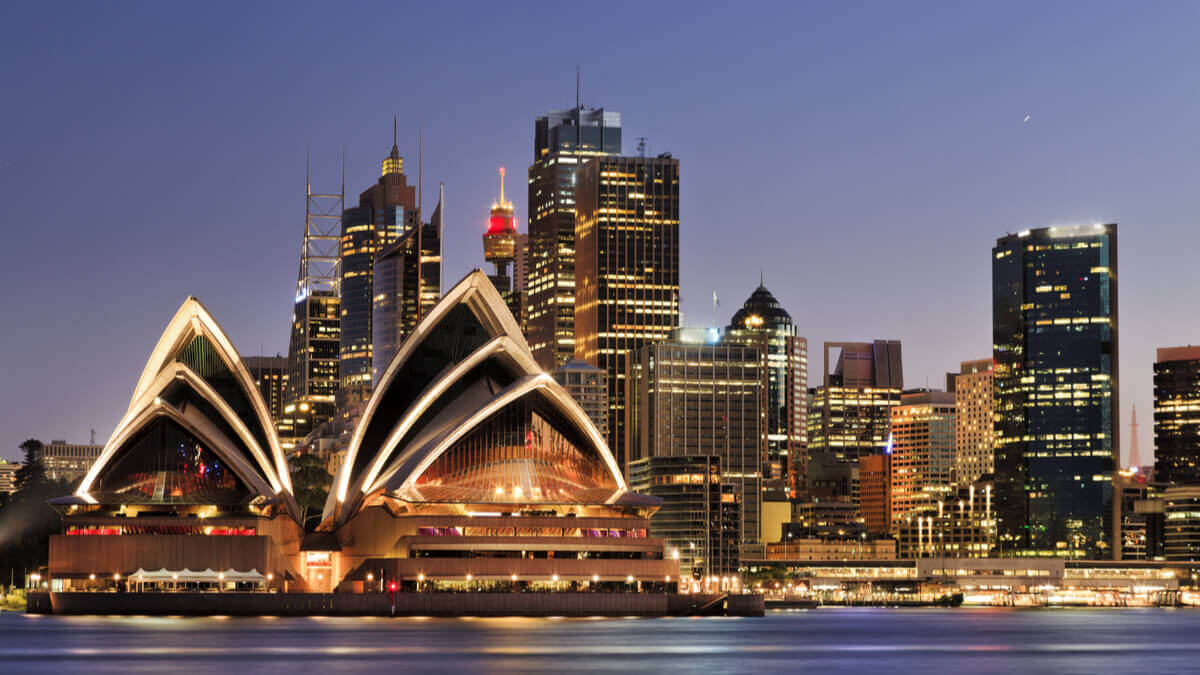
Are you considering moving to Australia from the US? With a great work life balance, enviable climate, and laidback lifestyle — not to mention beaches — Australia is a dream destination for many expats.
Sound like you? You’re probably wondering: what’s the difference between living in Australia vs USA? Or even: is Australia a good place to live? This guide has all that and more covered.
We’ll also look at how Wise and the Wise multi-currency account can help you save money when you relocate.
Australia quick facts
We’ll get into the details of how to move to Australia from the USA in just a moment — first some quick facts.
| Capital | Canberra |
| Language | English |
| Population | 26 million |
| Currency | Australian dollars (AUD or A$) |
| Government type | Parliamentary system — constitutional monarchy |
| Religion | Predominantly Christian |
| Weather | Northern areas are tropical, the far south is relatively temperate, much of the central areas are desert |
Getting to know Australia? Here are some more great facts:
Yes. You can move to Australia from the US. However, you’ll need the right visa to be able to do so. The good news is that there are lots of different visa types depending on what you’re headed to Australia to do. We’ll look into the Australia immigration processes in more detail a little later.
|
|---|
Australia is undoubtedly a wonderful place to move with your family. From a better work life balance compared to many US cities, great nature, safe cities and weather you can get out and about all year round, there’s not much not to love. Probably the biggest downside is that it’s just so far away from friends and relatives left behind.
The good news is that it’s possible to move to Australia with your pet. However, there are quite a few rules to follow.
The exact details will depend on your specific situation, but you can expect to need an import license, a clean bill of health, and full vaccination records for your pet. Usually there’s a quarantine process on arrival for your cat or dog, too.
If you’re moving to Australia you’ll need simple, cheap ways to pay for your shipping, cover a rental deposit, and manage your daily life using euros. Cut the costs of currency exchange and sending money to Australia with Wise.
Wise international transfers are fast, secure, and could save you 6x compared to sending with your normal bank.
Transfers always use the mid-market exchange rate, low, transparent fees, and you can get started online or in the Wise app for convenience.
There are lots of different visa options if you want to move to Australia — usually tied to the type of job you’ll do. Different visa programs are run nationally and regionally to make sure expats are able to move over to cover skills shortage areas, invest and start businesses.
You’ll find it easiest to get a work visa if you’re a skilled professional or expert, have extensive professional experience, or are moving over to invest in a new business which will help grow the Australian economy.
Some of the employment based visas which may appeal to people moving to Australia from the US may actually allow for permanent resident status. This has some great advantages including giving the right to live and work in Australia permanently, access to Medicare, travel to and from the country without needing additional documents and sponsor family members to come to the country.
Once you’ve been in Australia for at least 4 years — with permanent residence for at least one year of that time — you can even apply to become an Australian citizen if you’d like to.
The overall costs of living in Australia — or anywhere else for that matter — will vary widely based on your lifestyle. On a country average there’s not a huge amount of difference in the costs of consumer goods between the US and Australia — but rents in Australia are on average around 10% cheaper than in the US¹.
As rent is typically a major expense, this can mean you can live for less if you want to. We’ll dive into more details about the costs of accommodation in Australia later.
Moving to Australia is unlikely to be cheap — but the costs can vary a lot depending on how you decide to manage your move. Typical costs to think about include:
- Flight costs
- Visa and permit fees, which can include legal or translation costs
- Shipping of household goods
- Deposit on accommodation
- Extra charges if you’re moving with family or taking your pets along
- Temporary accommodation when you first arrive
- Daily living costs when you first arrive and before your first paycheck
Experts report that moving to Australia can cost around 10,500 USD on average, which includes some 3,000 USD in shipping costs². Make sure you build a realistic budget for your move!
You’ll want to think carefully about the best way for you to move your stuff to Australia — but this really comes down to your situation and personal preference. Of course you could choose to simply rock up with a backpack and buy everything you need on arrival.
Or you could ship everything you own by sea. However, most people are likely to do something in the middle of these two options, selling and offloading non-essentials in the US rather than paying to ship them.
You’ll be able to get online quotes for shipping which is usually based on volume estimates, to guide your planning.
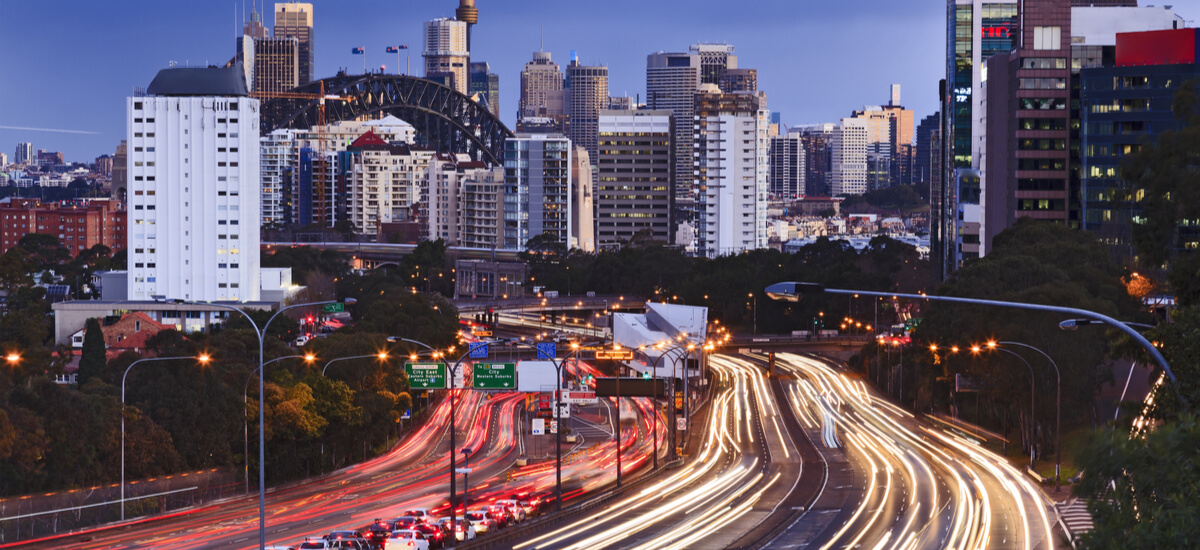
Let’s get into the detail of moving to Australia from the US and look at some important aspects of life Down Under.
There’s plenty of options for housing, with rentals being the most popular choice for expats. It’s easier to buy a place once you’re considered a permanent resident — more on that in a moment.
Costs of accommodation can vary widely based on location, so you’ll want to shop around. Popular locations will also have fast moving property markets so get ready to make decisions on where you want to live in double quick time.
On average, rental prices in Australia are around 10% lower than in the US. You may find even cheaper options outside of the city centers — a large family home outside the city could be up to almost 20% cheaper to rent in Australia compared to the US.
However, renting is competitive in many locations and you’ll need to make sure you have a full set of paperwork to back up any rental agreement you try to arrange.
Many landlords use what’s known as the 100 point check to confirm people’s identity. In this system you need to provide a suite of ID documents, with each accruing points — with 100 points the normal minimum to rent a place.
There are limits on the types of property you can buy as a foreigner in Australia. Usually this means that you can only buy new properties, land or a place for development — and only once you have permission in place from the Foreign Review Board.
You’ll need to get professional help if you want to buy a property in Australia as a temporary resident — and it’s simply not possible to buy a home there if you don’t already have legal residence and a suitable visa in place.
Australia has a high quality healthcare system, which is available to all permanent residents free or for a very low cost. You’ll need to register to access care once you arrive in Australia.
It’s very common for people to also have private healthcare cover as an alternative to the public health system. It’s worth knowing that there are plenty of doctors, hospitals and specialist healthcare services in cities, but Australia is a huge country and services in more rural areas may mean quite a journey.
Australia has an advanced banking system with a broad range of local, regional and global banking brands well represented. You won’t have any problem opening a bank account in Australia once you move there — and can often get started opening your account a few months before relocating to help you settle in faster.
You won’t normally be able to fully use your account until you have an Australian residential address and residence card though.
Personal income tax in Australia runs from 0% — 45% depending on your income, with an additional 2% healthcare levy for most people³. An extra healthcare charge of 1% — 1.5% is also applied on top earners. As with all things tax, you’ll want to get professional advice to make sure you keep up with your obligations both in Australia and back in the US.
If you’re moving to Australia with kids you’ll be able to choose between public, private and international schools. The school year in Australia runs from January through to December, with the longest break being taken mid-December to late January or even early February — the Aussie summer.
Schooling follows a familiar pattern in other respects with school days running from around 9 AM to around 3 or 3:30 PM, and 3 or 4 terms in a school year.
If you choose to live in a large city — especially if you’re in a central location — you'll probably be able to do without a vehicle if you don’t want to drive. Public transport is very good in many major cities, with efficient services and a reasonable cost. However, in rural locations, driving is pretty much a must. Distances are long so you’ll want to have a reliable vehicle to get you from A to B!
Australia is famed for having a relatively laidback lifestyle with a good work life balance. While this does come down to exactly what you do for a living and where you base yourself, it’s normal to get about 20 days of paid vacation a year, plus 7 national public holidays, and a couple more public holidays which are set at a state or territory level. Not too bad.
Generally Australians are fairly informal and friendly. They tend to be down to earth and don’t warm to people who show off — this also has the flip side that it’s pretty hard to impress a true Aussie.
Women play a full role in Australian society, although there’s still a gender pay gap of almost 14%. This is narrowing, though, and equal pay is protected by legislation.
Australians usually have an open and liberal attitude to the LGBTQI community, and discrimination against people for their sexuality has been illegal for some time. Same sex marriage has been legal for the last 5 years.
Getting a job in Australia is possible — but much easier if you work in a skills shortage area. In many cases, people choose to get a job before traveling to Australia — this makes the process of getting your visa so much easier.
Australia is considered to be a safe country. As with anywhere you’ll need to be observant and take common sense precautions, but serious crime rates aren’t a massive problem — usually they’re lower than the equivalent in the US.
The one thing Australia is known for though is dangerous animals. And while it’s true that there are venomous snakes, spiders and sharks, the reality is that Australian wildlife is usually way more scared of you than you are of it. Get to know different wildlife you may come across, and again take sensible precautions.
Probably more dangerous is the famed Australian heat — if you’re out and about make sure you have enough water and sun protection, and if you’re off the beaten track keep hold of a means of communication in case you need help.
Getting excited about moving to Australia from the US? Here are some places to consider when you’re looking for a place to live.
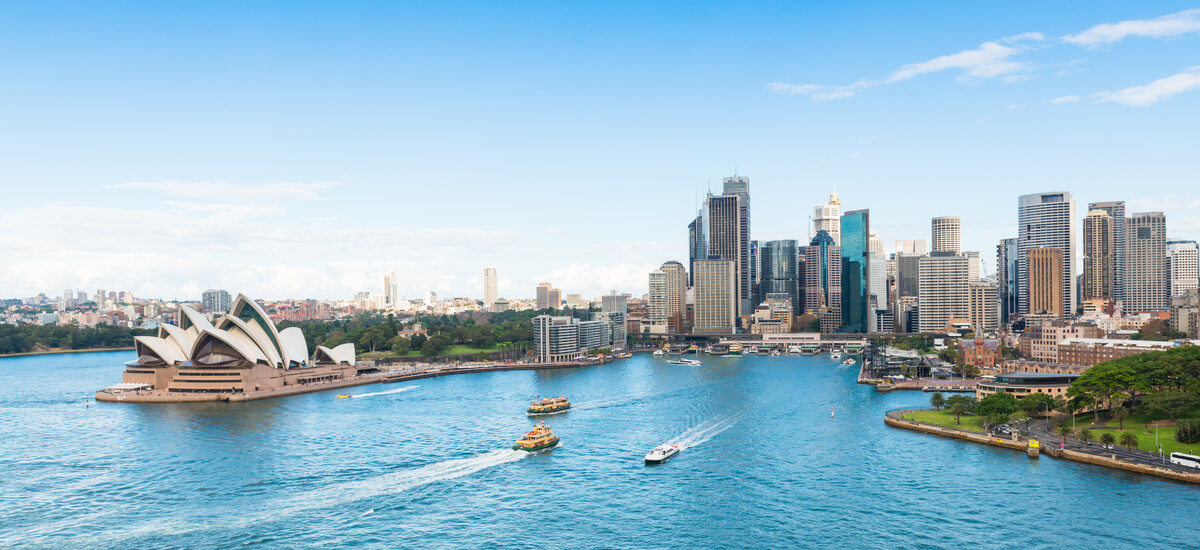
Sydney has a temperate climate, access to some beautiful outdoors environments, a buzzing cultural scene and a range of different neighborhoods to suit varied lifestyles. It’s undeniably a fun place to live, and with lots of jobs available here, also a good place for people moving to Australia for their career.
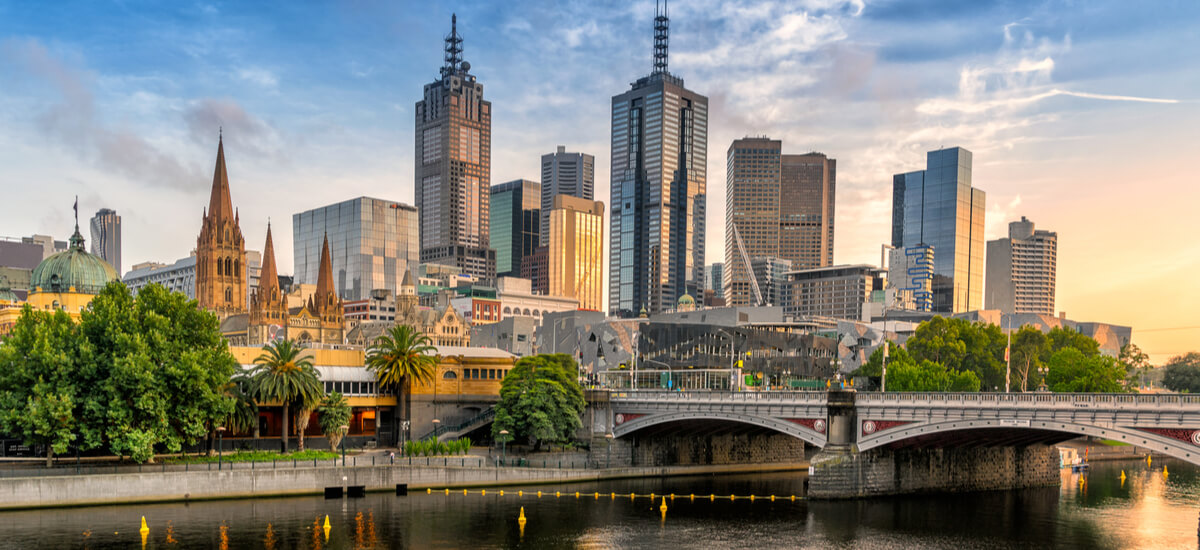
Melbourne has beaches, wonderful food and coffee, great infrastructure and some famous schools if you’re moving to Australia with your family. There’s a slightly lower cost of living in Melbourne compared to Sydney. The city may be a little less flashy, but there’s a vibrant cultural scene and lots to keep you busy.
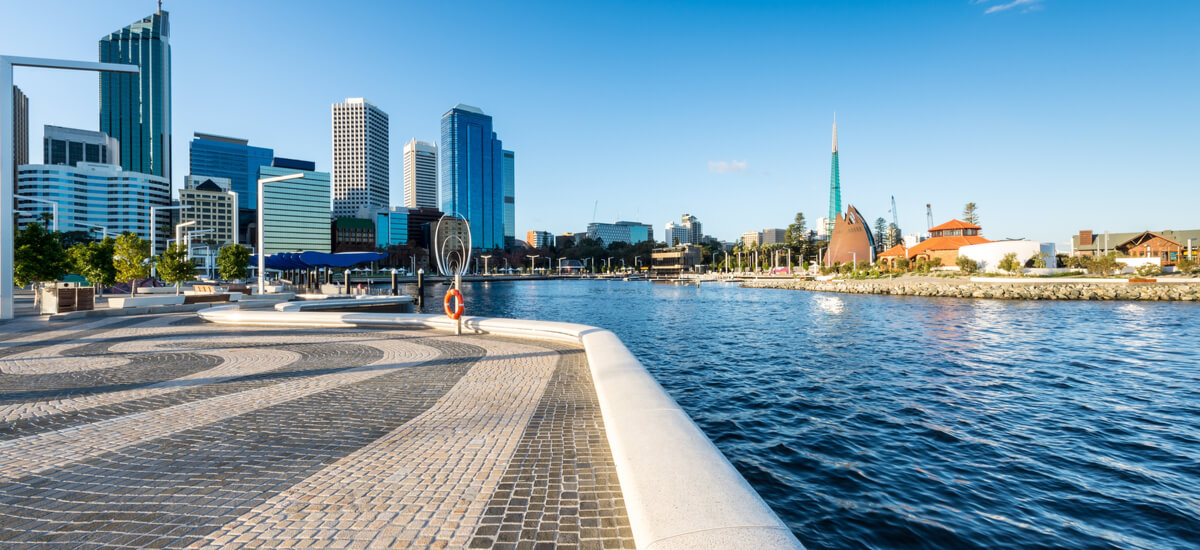
Far smaller than Sydney and Melbourne, Perth has great weather — beaches, naturally — and a slower pace of life. It’s easy to get out into nature in just a few minutes drive from the city, and there’s also good food and wine to enjoy. Generally the costs of living are lower here than in the larger cities, making it an attractive option for new arrivals.
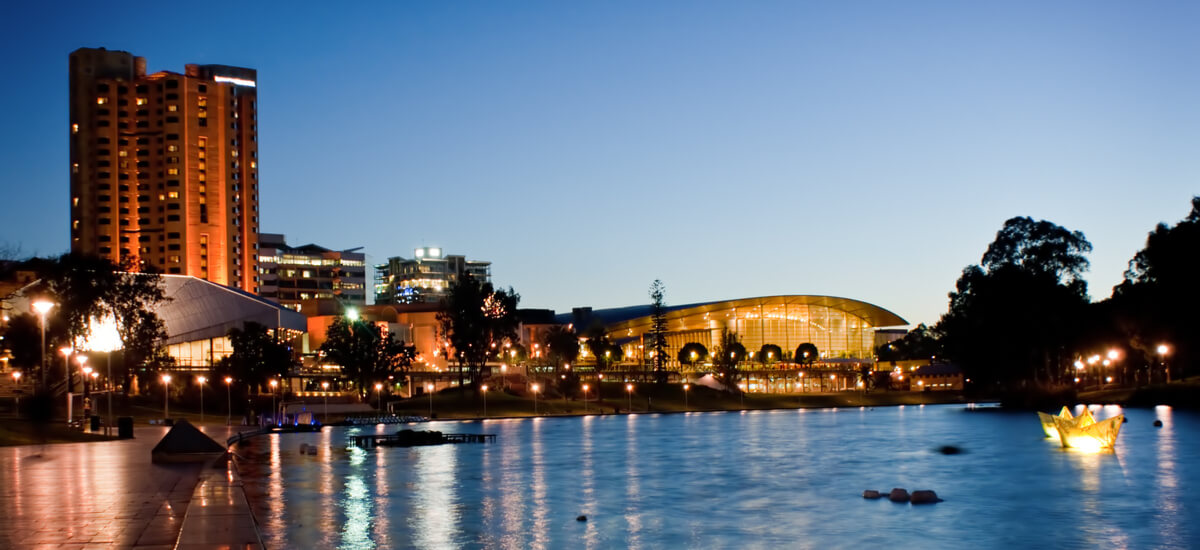
Adelaide describes itself as Australia’s most liveable city — which is high praise indeed. It’s affordable and offers a good quality of life, it’s safe and easy to get around, and as you’d expect, it offers great climate, cuisine and culture too.
| Ready to start moving? Don’t forget the key steps |
|---|
|
No matter what you plan on doing in Australia, adventure awaits. Use this guide as a starting point to plan your relocation from the US to Australia, and good luck!
Sources:
Sources checked on 03.25.2022
*Please see terms of use and product availability for your region or visit Wise fees and pricing for the most up to date pricing and fee information.
This publication is provided for general information purposes and does not constitute legal, tax or other professional advice from Wise Payments Limited or its subsidiaries and its affiliates, and it is not intended as a substitute for obtaining advice from a financial advisor or any other professional.
We make no representations, warranties or guarantees, whether expressed or implied, that the content in the publication is accurate, complete or up to date.

Want to learn about property taxes in Australia? This guide covers types of property taxes and how they are calculated to help you navigate the process.

What are the best property management software systems for landlords in Australia? Take a look at our list and choose the most suitable option for you.
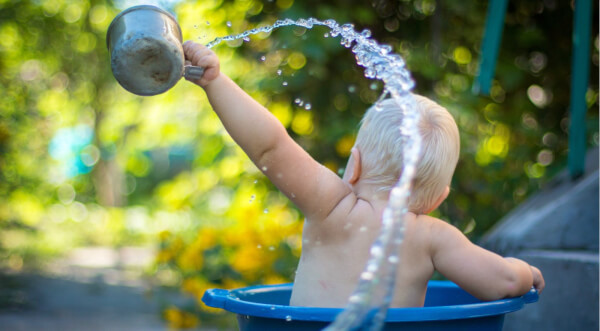
Having a new baby brings joy and excitement. Along with the excitement, there’s bound to be stress. If you’re an expat and an expectant parent, you face a...

There are lots of people choosing to make their home in Australia. But having the right to live and work there isn’t the same as being an Australian citizen -...
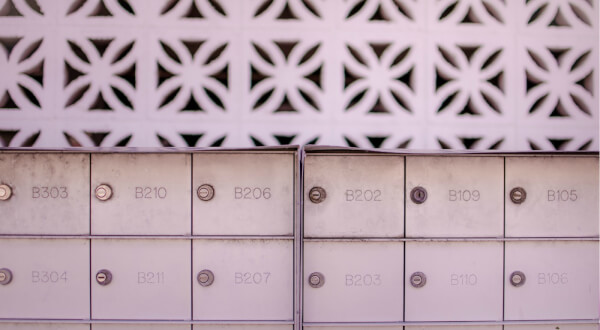
The Land Down Under is a popular destination for tourists from all over the world, as well as expats. With bustling cities and stunning natural scenery, it’s...
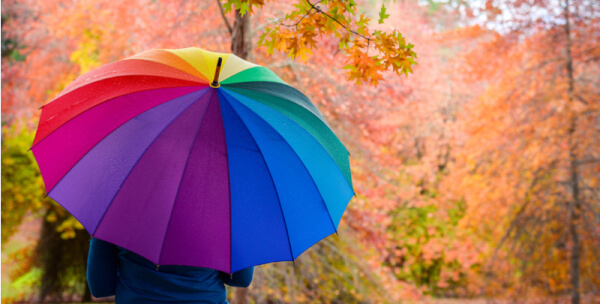
There’s a lot that’s great about moving to Australia. And even though getting high-quality healthcare might not be quite as much fun as a day on Bondi Beach...